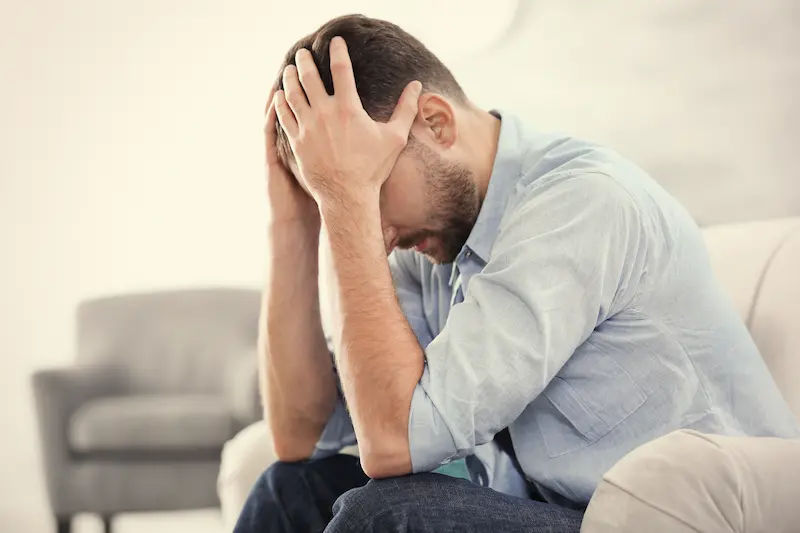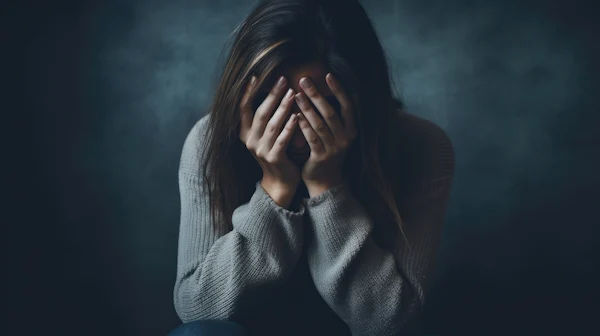Alcohol Use and Its Impact on Depression
Know the relation between alcohol and depression, why people opt for alcohol, signs of worsening and tips on how to manage depression and more.

Written by Dr. J T Hema Pratima
Reviewed by Dr. Rohinipriyanka Pondugula MBBS
Last updated on 13th Jan, 2026

Introduction
Alcohol is often seen as a way to relax or cope with stress, but its relationship with depression is complex and concerning. Many people turn to alcohol to ease sadness, anxiety, or loneliness, only to find that it worsens their mental health over time.
If you or someone you know struggles with alcohol use and depression, understanding this connection can help in making healthier choices.
This article will help you understand the connection of alcohol and depression, how it matters and tips to manage the depression.
How Alcohol Affects Depression?
Alcohol is a depressant, meaning it slows down brain activity. While a drink may initially make you feel relaxed or happy, it disrupts the balance of chemicals in your brain, particularly serotonin and dopamine—key neurotransmitters that regulate mood. Over time, excessive drinking can:
Worsen depressive symptoms, making sadness, hopelessness, and fatigue more intense.
Disrupt sleep, leading to poor rest and increased irritability.
Lower motivation, making it harder to engage in activities that improve mental health.
Increase anxiety, as alcohol withdrawal can trigger nervousness and panic.
Consult top doctor for best advice
Why Do People with Depression Turn to Alcohol?
Many individuals use alcohol as a form of self-medication to numb emotional pain. However, this creates a dangerous cycle:
1. Temporary Relief – Alcohol may provide short-term comfort.
2. Increased Depression – As the effects wear off, mood dips lower than before.
3. Dependence – The brain starts relying on alcohol to feel "normal," leading to addiction.
This cycle makes depression harder to treat and can lead to alcohol use disorder (AUD), a condition where drinking becomes uncontrollable despite negative consequences.
Signs That Alcohol Is Making Depression Worse
If you notice the following, it may be time to reassess your drinking habits:
Drinking to cope with sadness or stress regularly.
Feeling guilty or ashamed about drinking.
Needing more alcohol to feel the same effects.
Withdrawal symptoms (shakiness, anxiety, sweating) when not drinking.
Loved ones expressing concern about your drinking.
Breaking the Cycle: Healthy Ways to Manage Depression
If alcohol is affecting your mental health, small changes can make a big difference:
1. Reduce or Quit Alcohol Gradually
Cutting back slowly can help avoid severe withdrawal symptoms.
Seek medical advice if you experience intense cravings or withdrawal.
2. Seek Professional Help
Therapy (like cognitive behavioral therapy) can address both depression and alcohol use.
Support groups (such as AA or SMART Recovery) provide community support.
3. Adopt Healthier Coping Mechanisms
Exercise – Even a short walk boosts mood-enhancing chemicals.
Mindfulness & Meditation – Helps manage stress and emotional triggers.
Creative Outlets – Writing, painting, or music can be therapeutic.
4. Improve Sleep & Nutrition
Alcohol disrupts sleep; try a calming bedtime routine instead.
Eat balanced meals with whole grains, lean proteins, and healthy fats to stabilize mood.
5. Build a Support System
Talk to trusted friends or family about your struggles.
Avoid social situations centered around drinking if they trigger cravings.
When to Seek Help?
If depression and alcohol use feel overwhelming, professional support is crucial. Consider reaching out if:
You’re unable to cut back despite wanting to.
Depression persists even when sober.
Alcohol is affecting work, relationships, or health.
Final Thoughts
Alcohol may seem like an escape, but it often deepens depression in the long run. Recognizing this connection is the first step toward healing. Small, consistent changes—whether reducing alcohol, seeking therapy, or adopting healthier habits can lead to significant improvements in mental well-being.
Consult top doctor for best advice
Consult top doctor for best advice

Dr. Vivek D
General Physician
4 Years • MBBS
Bengaluru
PRESTIGE SHANTHINIKETAN - SOCIETY CLINIC, Bengaluru

Dr Syed Mateen Pasha
General Physician
2 Years • MBBS
Bengaluru
PRESTIGE SHANTHINIKETAN - SOCIETY CLINIC, Bengaluru

Dr. Anand Ravi
General Physician
2 Years • MBBS
Bengaluru
PRESTIGE SHANTHINIKETAN - SOCIETY CLINIC, Bengaluru

Dr. Syed Ismail Ali
General Practitioner
7 Years • MBBS
Hyderabad
Apollo 24|7 Clinic, Hyderabad

Dr. Harshendra Jaiswal
General Physician/ Internal Medicine Specialist
12 Years • MBBS , MD (General medicine)
Kolkata
108 DHANA DHANVANTARI Clinic, Kolkata
(25+ Patients)




